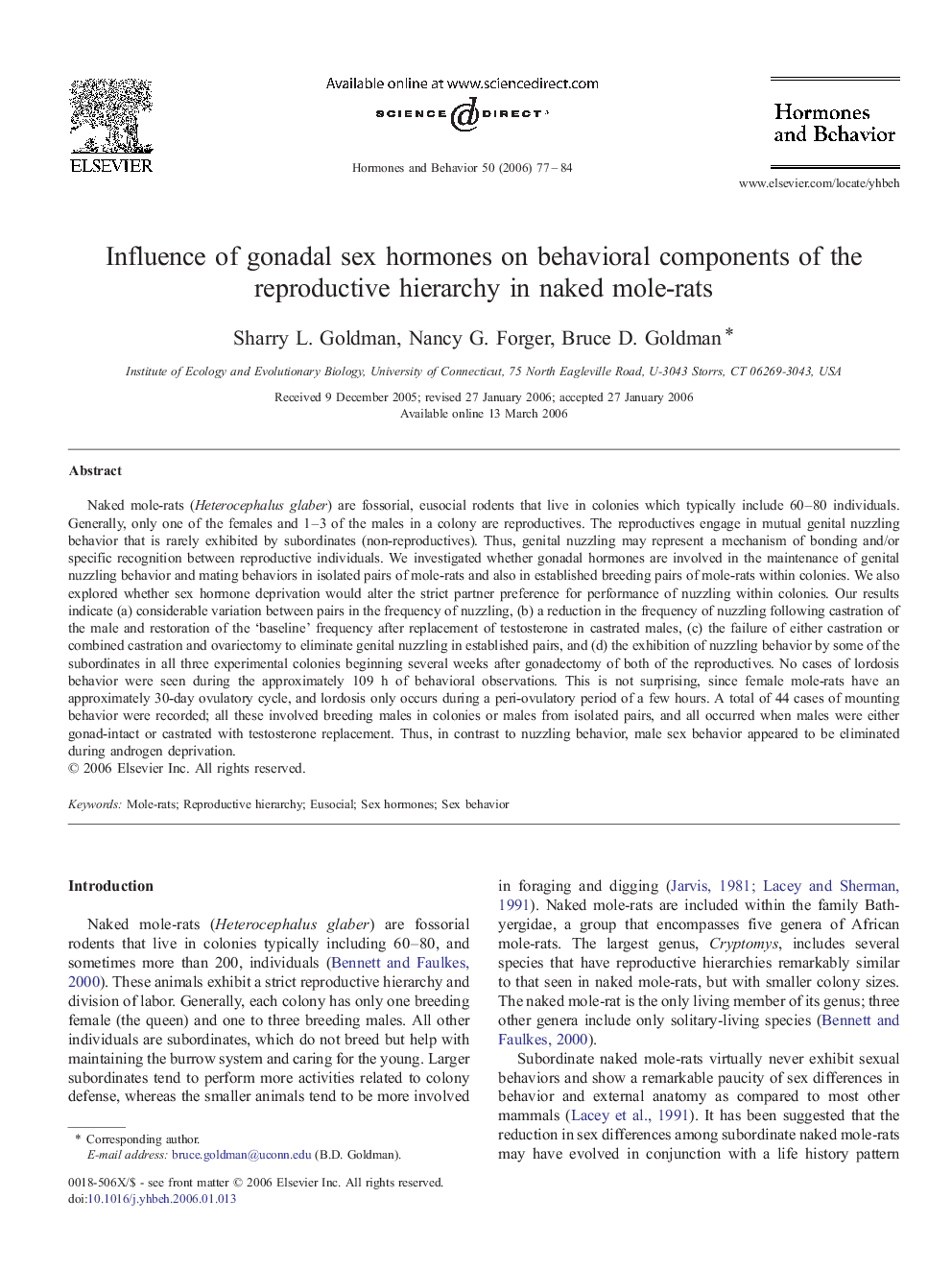| Article ID | Journal | Published Year | Pages | File Type |
|---|---|---|---|---|
| 323579 | Hormones and Behavior | 2006 | 8 Pages |
Naked mole-rats (Heterocephalus glaber) are fossorial, eusocial rodents that live in colonies which typically include 60–80 individuals. Generally, only one of the females and 1–3 of the males in a colony are reproductives. The reproductives engage in mutual genital nuzzling behavior that is rarely exhibited by subordinates (non-reproductives). Thus, genital nuzzling may represent a mechanism of bonding and/or specific recognition between reproductive individuals. We investigated whether gonadal hormones are involved in the maintenance of genital nuzzling behavior and mating behaviors in isolated pairs of mole-rats and also in established breeding pairs of mole-rats within colonies. We also explored whether sex hormone deprivation would alter the strict partner preference for performance of nuzzling within colonies. Our results indicate (a) considerable variation between pairs in the frequency of nuzzling, (b) a reduction in the frequency of nuzzling following castration of the male and restoration of the ‘baseline’ frequency after replacement of testosterone in castrated males, (c) the failure of either castration or combined castration and ovariectomy to eliminate genital nuzzling in established pairs, and (d) the exhibition of nuzzling behavior by some of the subordinates in all three experimental colonies beginning several weeks after gonadectomy of both of the reproductives. No cases of lordosis behavior were seen during the approximately 109 h of behavioral observations. This is not surprising, since female mole-rats have an approximately 30-day ovulatory cycle, and lordosis only occurs during a peri-ovulatory period of a few hours. A total of 44 cases of mounting behavior were recorded; all these involved breeding males in colonies or males from isolated pairs, and all occurred when males were either gonad-intact or castrated with testosterone replacement. Thus, in contrast to nuzzling behavior, male sex behavior appeared to be eliminated during androgen deprivation.
